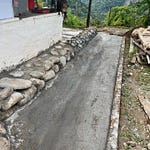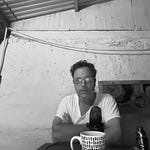The concept of economy extends far beyond the modern understanding of production, consumption, and monetary supply. Rooted in the ancient Greek word oikos, meaning 'household', economy fundamentally signifies the management, distribution, and allocation of resources within a given system. This principle is not merely fiscal but deeply spiritual, reflecting the inherent order and balance required for any system—from the individual human body to complex ecosystems—to thrive. The human body itself operates as an intricate economy, requiring resource management for sustenance and function. When aligned with higher, spiritual energies, this internal economy can shift, demanding less physical input.
Nature provides perfect models of economy. Ecosystems operate in a state of equilibrium where resources are utilized efficiently, waste is minimized, and balance is maintained through interconnectedness. Species coexist, each fulfilling a role necessary for the whole, refuting simplistic notions of mere "survival of the fittest." Indigenous societies, such as the Kogi of the Sierra Nevada mountains in Colombia, exemplify this natural economic principle through complete autonomy, deriving all necessities from their immediate environment and living in harmony with it. Their existence demonstrates a sustainable, self-reliant model intrinsically linked to their environment.
However, human societal structures have often deviated sharply from these natural principles. A significant shift occurred with the advent of modern banking systems, exemplified by the establishment of institutions like the Bank of England in the late 17th century. This marked the beginning of a long-term trajectory towards centralized control, leveraging financial mechanisms and specific ideologies, often associated with esoteric or secret societies rooted in traditions like the Kabbalah. These systems moved away from localized, self-sufficient management towards globalized structures built on debt and abstract financial instruments.
Over centuries, this framework evolved, particularly in the 20th century with the widespread adoption of central banking and the later decoupling of currencies from tangible assets like gold. A pivotal development was the rise of the welfare state. While potentially well-intentioned, the provision of social support through centralized government created widespread dependence. This dependence systematically eroded individual and community self-reliance, breaking the connection to natural economic principles—the 'common sense' associated with agrarian or rural life. As populations became increasingly reliant on government systems for survival, their autonomy diminished, mirroring a process of domestication.
This cultivated dependence has profound implications. When individuals and communities lose the skills and knowledge required for self-sufficiency—the ability to procure food, shelter, and necessities independently—they become entirely reliant on the systems that fostered this dependence. From the perspective of those managing these large-scale systems, a population lacking the capacity for self-reliance and contributing little productive value within the established framework may be seen as burdensome. This viewpoint, however detached from fundamental human value, perceives a justification for stringent control or even the reduction of populations that can no longer sustain themselves outside the artificial economic structure. The loss of essential life skills, therefore, represents not just a practical deficiency but a failure in the fundamental responsibility of maintaining human autonomy and resilience.
Ultimately, understanding economy requires recognizing its spiritual foundation in balance, management, and self-reliance. Natural systems embody this principle effortlessly. The trajectory of modern economic history, however, reveals a deliberate move towards centralization and dependence, creating vulnerabilities. Recognizing the dynamics between true economic principles and artificial systems of control is crucial for navigating a future where self-sufficiency and connection to fundamental life-sustaining skills may prove paramount.











Share this post